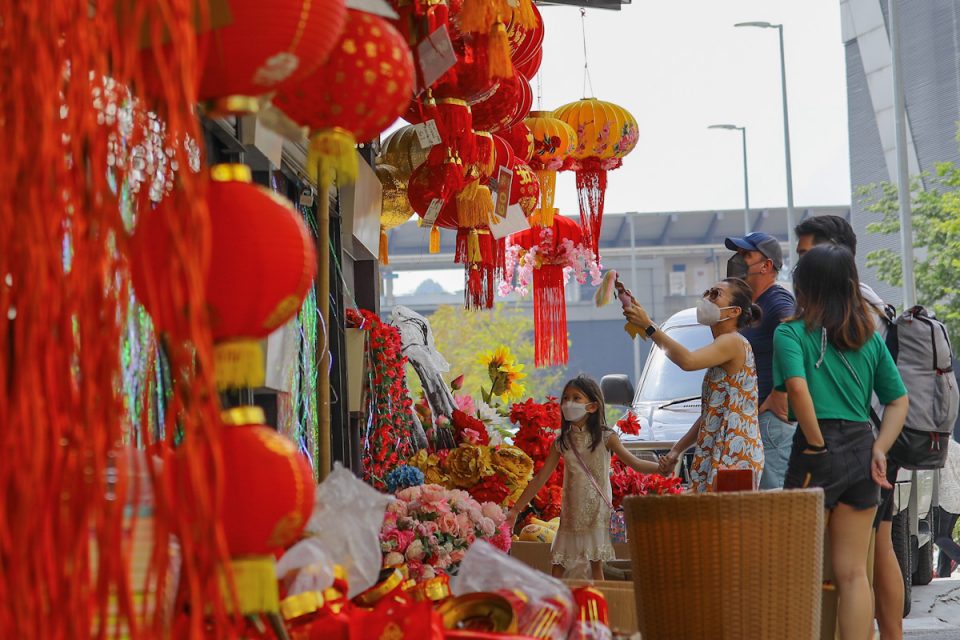KUALA LUMPUR, Feb 10 — Ti Gong Dan or the birthday of the Jade Emperor is among the significant events observed during the 15-day Chinese New Year festivities.
It is celebrated on the ninth day of the lunar calendar by the Hokkien community in honour of the Jade Emperor, who is said to be the head of all deities and ruler of Heaven, Earth and Hell.
Housewife Lim Cheng Gek, 69, and her family celebrate the deity’s birthday every year without fail by performing special prayers and rituals at their home at Jalan Ipoh here.
As far as Lim is concerned, the ninth day of the Lunar New Year – which is also known as the Hokkien New Year – is more significant than the first day.
Preparations
Lim said her family would start making preparations for the big day on the eve by buying the necessary paraphernalia for the prayers and rituals that need to be performed to pay homage to the Jade Emperor. Food such as roast pork, boiled chicken, roast duck and fish are also prepared as offerings. Another essential item for the celebration is sugarcane.
“We members of the Hokkien community are willing to splurge when it comes to celebrating Ti Gong Dan because there is a meaningful story behind the occasion and it also helps to bring our family closer… we pray together for our well-being,” she told Bernama.
She said in view of the pandemic, her family celebrated the Hokkien New Year yesterday in a moderate manner, restricting it to only immediate family members in compliance with the standard operating procedures (SOPs).
According to Lim, the celebrations are their way of expressing gratitude to the Jade Emperor who is said to have protected the Hokkien community in China’s Fujian Province when they were attacked by pirates during the Ming dynasty.
“It so happened that on the first day of the lunar calendar, the people escaped from the pirates and hid in a sugarcane plantation for nine days.
“Then, on the ninth day, they found themselves safe and sound as the pirates had left… coincidentally, that day was also the birthday of the Jade Emperor. This is why the Chinese Hokkien community believe that it was the Jade Emperor who protected the people in the sugarcane plantation. This is also the reason why sugarcane is a symbolic part of the birthday celebrations,” she explained.
Prayers
Lim’s eldest daughter Penny Kwek, 46, said the main prayers performed in conjunction with Ti Gong Dan would begin at 11 pm on the eighth day of the lunar calendar and continue until the early hours of the ninth day.
“We Chinese believe that each new day dawns at 11 pm, so this is why the prayers begin at sharp 11 pm. Before we start our rituals, the whole family, dressed in new clothes, would arrange the food offerings and other prayer items on a table in front of the house, with sugarcane stalks tied to the left and right sides of the table,” she said.
Kwek also said there are slight differences in the way the Hokkien communities in the northern and southern parts of the peninsula celebrate the Jade Emperor’s birthday.
“In Penang, where we come from, the Hokkien families usually prepare two tables – one for vegetarian food and the other for meat dishes – as part of the rituals. Hokkien families in Klang and Johore usually place all the food and other offerings on one table,” she said.
She said the prayers would end with the burning of paper money and lighting of firecrackers to liven up the atmosphere.
“Families who can afford it would also invite lion dance troupes to perform. Once the prayers and rituals are over, the whole family will sit down to enjoy the food offerings because we believe that eating the food will bring us blessings,” she added.
Kwek also said that in the event of the death of a family member, that family is not allowed to celebrate the Jade Emperor’s birthday for three years.
“We are required to be in mourning for a period of 100 days or up to three years depending on the families concerned. Female family members who are menstruating are also not allowed to participate in the prayers,” she said, adding that family members are encouraged to wear brightly coloured outfits during the celebrations.
“We are not allowed to wear clothes in dark or dull colours as these symbolise sadness.”
— Bernama





